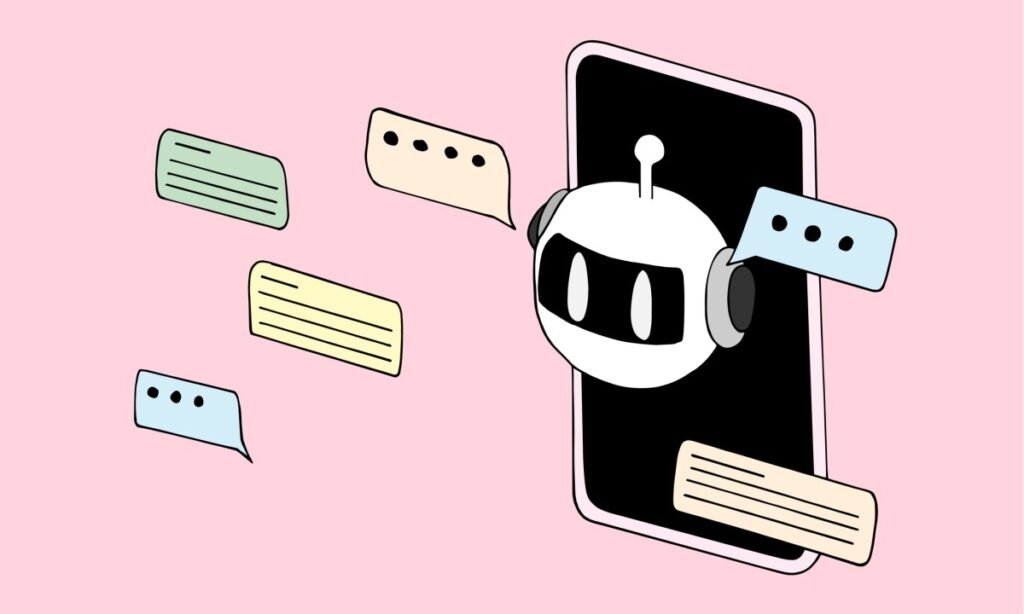The California State Assembly took a big step toward regulating AI on Wednesday night, passing SB 243 — a bill that regulate AI companion chatbots in order to protect minors and vulnerable users. The legislation passed with bipartisan support and now heads to the state Senate for a final vote Friday.
If Governor Gavin Newsom signs the bill into law, it would take effect January 1, 2026, making California the first state to require AI chatbot operators to implement safety protocols for AI companions and hold companies legally accountable if their chatbots fail to meet those standards.
The bill specifically aims to prevent companion chatbots, which the legislation defines as AI systems that provide adaptive, human-like responses and are capable of meeting a user’s social needs – from engaging in conversations around suicidal ideation, self-harm, or sexually explicit content. The bill would require platforms to provide recurring alerts to users – every three hours for minors – reminding them that they are speaking to an AI chatbot, not a real person, and that they should take a break. It also establishes annual reporting and transparency requirements for AI companies that offer companion chatbots, including major players OpenAI, Character.AI, and Replika.
The California bill would also allow individuals who believe they have been injured by violations to file lawsuits against AI companies seeking injunctive relief, damages (up to $1,000 per violation), and attorney’s fees.
SB 243, introduced in January by state senators Steve Padilla and Josh Becker, will go to the state Senate for a final vote on Friday. If approved, it will go to Governor Gavin Newsom to be signed into law, with the new rules taking effect January 1, 2026 and reporting requirements beginning July 1, 2027.
The bill gained momentum in the California legislature following the death of teenager Adam Raine, who committed suicide after prolonged chats with OpenAI’s ChatGPT that involved discussing and planning his death and self-harm. The legislation also responds to leaked internal documents that reportedly showed Meta’s chatbots were allowed to engage in “romantic” and “sensual” chats with children.
In recent weeks, U.S. lawmakers and regulators have responded with intensified scrutiny of AI platforms’ safeguards to protect minors. The Federal Trade Commission is preparing to investigate how AI chatbots impact children’s mental health. Texas Attorney General Ken Paxton has launched investigations into Meta and Character.AI, accusing them of misleading children with mental health claims. Meanwhile, both Sen. Josh Hawley (R-MO) and Sen. Ed Markey (D-MA) have launched separate probes into Meta.
Techcrunch event
San Francisco
|
October 27-29, 2025
“I think the harm is potentially great, which means we have to move quickly,” Padilla told TechCrunch. “We can put reasonable safeguards in place to make sure that particularly minors know they’re not talking to a real human being, that these platforms link people to the proper resources when people say things like they’re thinking about hurting themselves or they’re in distress, [and] to make sure there’s not inappropriate exposure to inappropriate material.”
Padilla also stressed the importance of AI companies sharing data about the number of times they refer users to crisis services each year, “so we have a better understanding of the frequency of this problem, rather than only becoming aware of it when someone’s harmed or worse.”
SB 243 previously had stronger requirements, but many were whittled down through amendments. For example, the bill originally would have required operators to prevent AI chatbots from using “variable reward” tactics or other features that encourage excessive engagement. These tactics, used by AI companion companies like Replika and Character, offer users special messages, memories, storylines, or the ability to unlock rare responses or new personalities, creating what critics call a potentially addictive reward loop.
The current bill also removes provisions that would have required operators to track and report how often chatbots initiated discussions of suicidal ideation or actions with users.
“I think it strikes the right balance of getting to the harms without enforcing something that’s either impossible for companies to comply with, either because it’s technically not feasible or just a lot of paperwork for nothing,” Becker told TechCrunch.
SB 243 is moving toward becoming law at a time when Silicon Valley companies are pouring millions of dollars into pro-AI political action committees (PACs) to back candidates in the upcoming mid-term elections who favor a light-touch approach to AI regulation.
The bill also comes as California weighs another AI safety bill, SB 53, which would mandate comprehensive transparency reporting requirements. OpenAI has written an open letter to Governor Newsom, asking him to abandon that bill in favor of less stringent federal and international frameworks. Major tech companies like Meta, Google, and Amazon have also opposed SB 53. In contrast, only Anthropic has said it supports SB 53.
“I reject the premise that this is a zero sum situation, that innovation and regulation are mutually exclusive,” Padilla said. “Don’t tell me that we can’t walk and chew gum. We can support innovation and development that we think is healthy and has benefits – and there are benefits to this technology, clearly – and at the same time, we can provide reasonable safeguards for the most vulnerable people.”
TechCrunch has reached out to OpenAI, Anthropic, Meta, Character AI, and Replika for comment.

